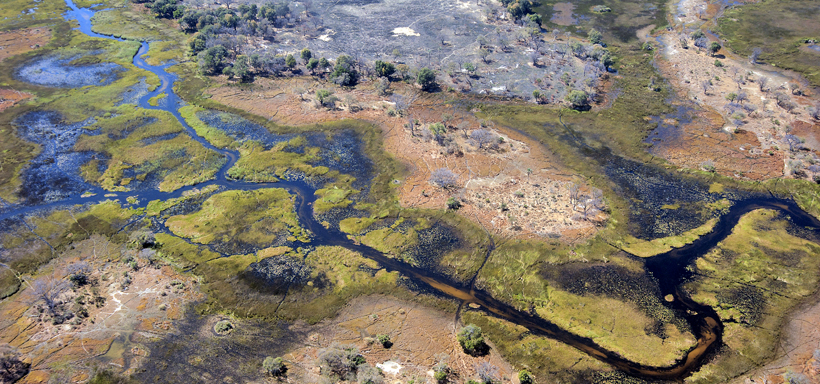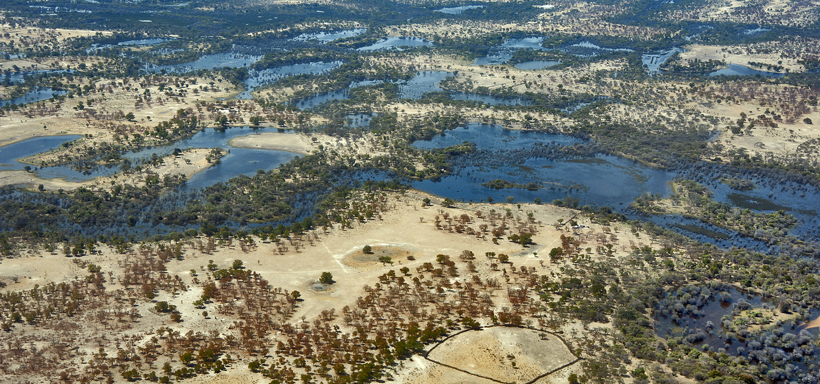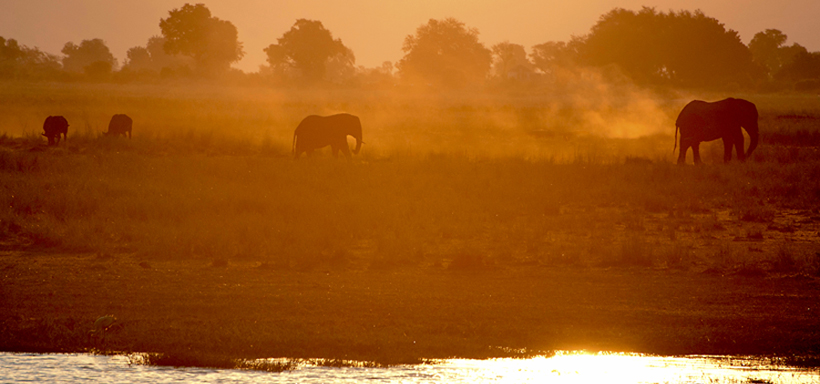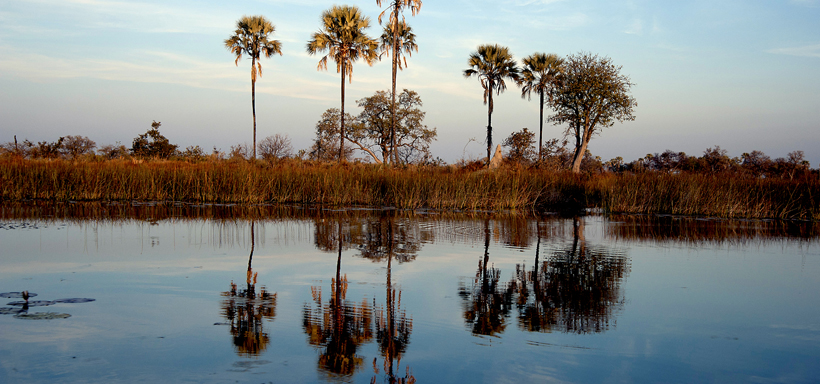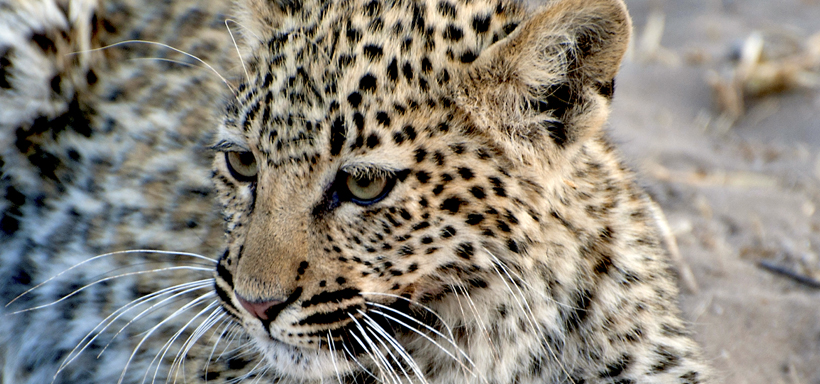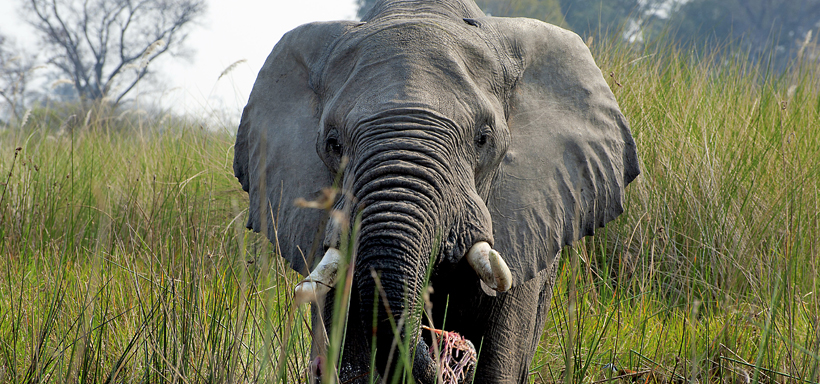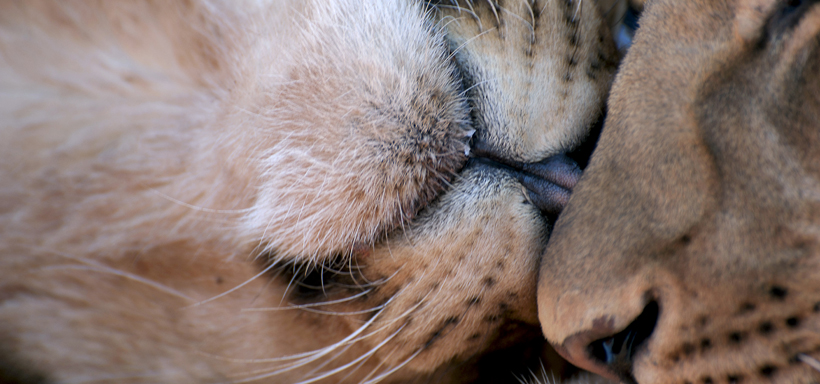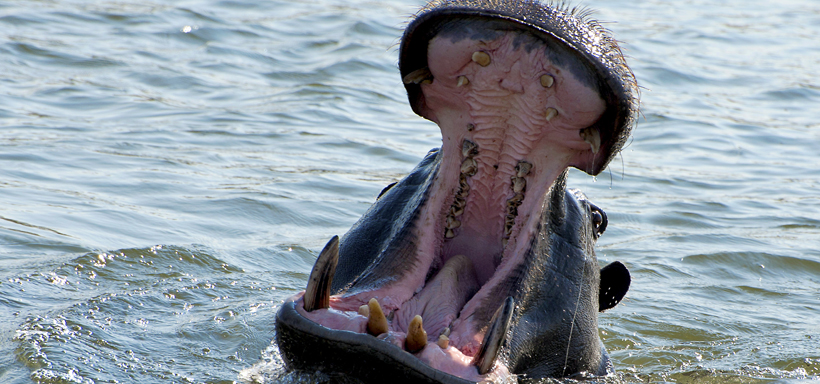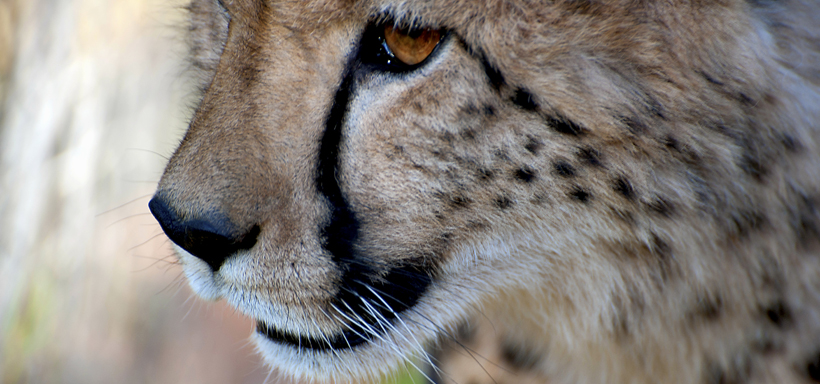The government has recently paid much attention to environmental protection and extension of protected areas is progressing gradually towards the goal of 20% of the territory. Specific features of the management of these areas, derived directly from the Anglo-Saxon formulation, is the sharing of public and private sectors, so that the landowners feel more empowered in the management of the territory. The hunting regulation has been addressed with wisdom. The government organizes periodic hunts open to private (including foreigners) where an excess of species is registered, especially elephants, compared to the available resources. This approach has allowed to stop the phenomenon of poaching directly and indirectly. In fact, these initiatives have allowed us to place on the market a stream of hides, etc, lowering the prices and making illegal hunting less attractive.
The arid lands of Botswana are home to various species. First, the country has over seventy species of snakes, including three spitting cobra. In the Okavango area you can easily spot the poisonous boomslang (Afrikaans word meaning “arboreal snake”). There are many species of birds, including Pavonina crane, the tumbler pigeon and the so-called secretary bird, which eats snakes.
The beautiful national parks and beautiful private estates are home to a wide variety of animals, such as elephants, leopards, cheetahs, spotted hyenas, warthogs, blacks and whites rhinos ostriches, wild dogs, giraffes, hippos, zebras, lions and many more.
Most of the country hosts species adapted to arid climate. In particular, acacia trees and low thorny bushes grow easily. The only deciduous forests are found in the north-east and also provide a decent amount of timber.

